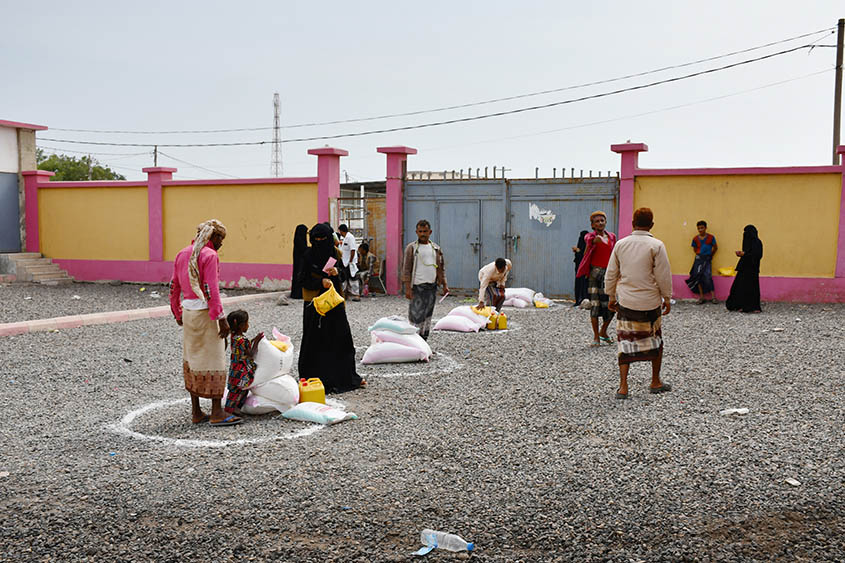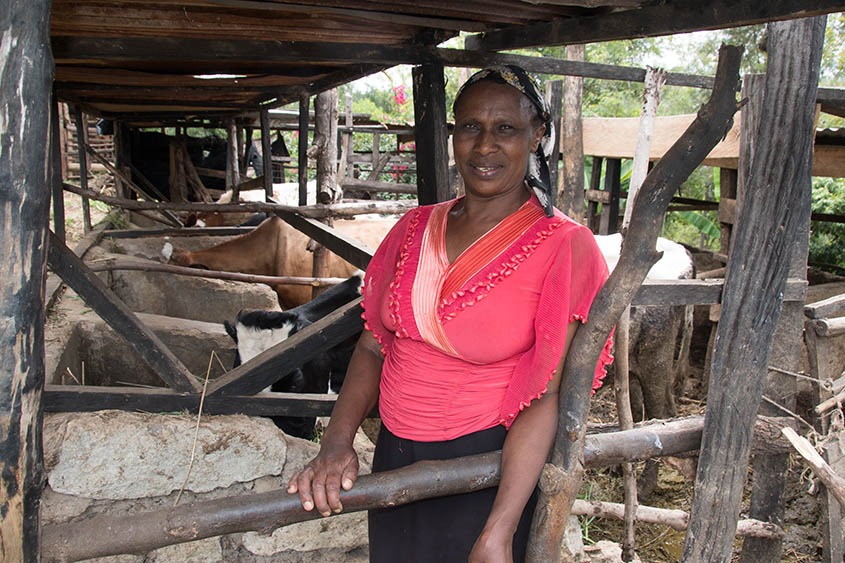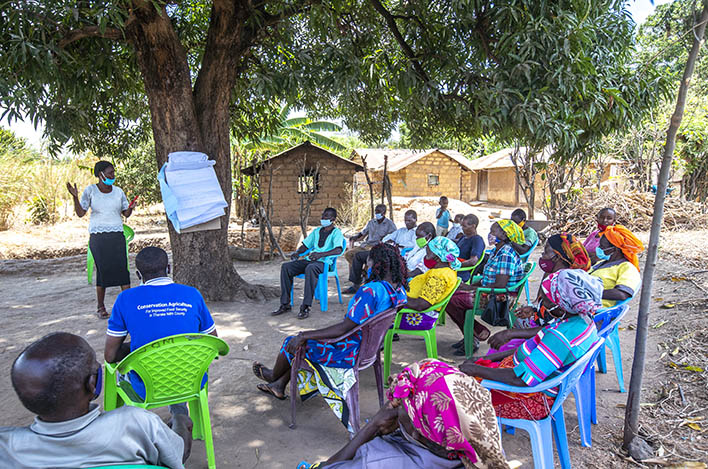Each summer, we reflect on the year behind us and what the Foodgrains Bank network has achieved in our mission of ending world hunger. This year’s report focuses on telling the story of how the global pandemic, an emergency none of us expected to encounter, has shaped this response to hunger.
In 2020-21, we provided assistance for 989,000 people in 33 countries.
Our members and their partners responded with diligence and flexibility to the challenges of carrying on the work of responding to hunger through the pandemic.
In Syria, volunteers with Forum for Development, Culture and Dialogue, the local partner of our member Mennonite Central Committee Canada, delivered food baskets to elderly households instead of having them come pick up in-person from a distribution site.
In Kenya, families farming on small plots of land were supported in forming marketing and savings and loans groups. This helped them weather the impact of restrictions on movements that prevented them from being able to effectively market their crops. Staff from the National Council of Churches in Kenya, supported through our member The United Church of Canada, implemented this project.
Responding to hunger in times of emergency
Last year, funding was approved to provide emergency food to 217,000 people experiencing hunger in 18 countries.
This included responding to well-publicized disasters, such as the explosion in the Port of Beirut at the end of August and the ongoing conflict in Syria. It also included responding to less well-publicized disasters, such as the combined impacts of drought, the pandemic and economic instability in Zimbabwe.
“Things have been so difficult that even those who would normally help our family have nothing to give, and they too are hungry,” says Mr. Mashamba of Gutu, Zimbabwe. “Even one meal a day was a struggle,” he says.
Through our member ERDO and their partner Pentecostal Assemblies of Zimbabwe, Mr. Mashamba and his family received seven monthly rations of maize meal, beans and cooking oil to help them get through the lean season. “The program has meant that we have three meals a day,” he says.

Yemen is home to one of the greatest humanitarian emergencies of our time. Through our member The Christian and Missionary Alliance, we provided emergency food to families forced from their home by conflict and facing crisis levels of hunger. (Photo: Submitted)
Creating long-term solutions to hunger
Last year, we approved funding to help 647,000 people facing long-term hunger and malnutrition in 21 countries.
Our long-term development work focuses on supporting families’ efforts to provide food for themselves. This includes helping rebuild livelihoods after a crisis, promoting sustainable farming practices, and working with communities to strengthen their ability to respond to natural disasters and a changing climate. We also wrapped up our five-year Scaling-Up Conservation Agriculture in East Africa program.

Jedidah Njeri participated in agricultural trainings offered through our member World Renew and their local partner Anglican Development Services in Kenya. (Photo: Phil Maher/World Renew)
A special $2.3 million matching grant from the Government of Canada allowed us to help farmers in several African countries adapt to the economic impact of the pandemic. Foodgrains Bank supporters donated an additional $700,000, bringing the total value of the program to $3 million.
“As a mother, the expectation in the African setting is to provide for the food needs irrespective of the situation,” says Rose Mandhawun, of Kucwiny, Uganda. In normal years, Rose provides food for her family by selling what she can grow on her plot of land. Due to restrictions on movement and market gatherings though, this year her income and ability to provide for her family suffered.
Through a project of our member World Renew working through the Nebbi Diocese of the Church of Uganda, she received maize and bean seeds to help her continue supporting her family through farming.
This story was featured in the summer edition of Breaking Bread. Download or order your copy here.



